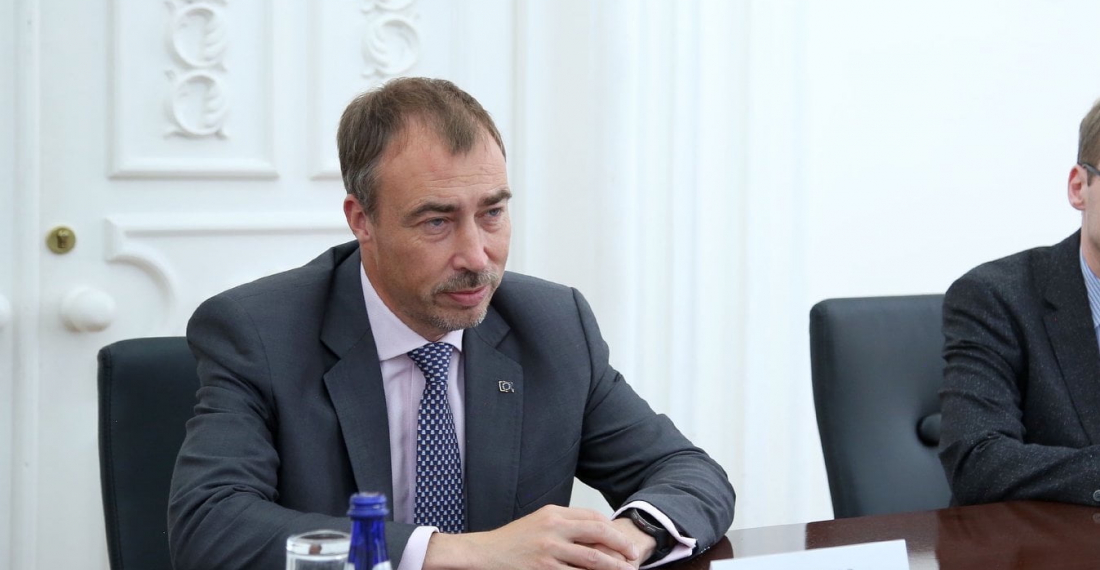The EU special representative for the South Caucasus and the crisis in Georgia, Toivo Klaar, yesterday (29 July) spoke to the foreign ministers of Armenia and Azerbaijan following the biggest escalation in violence between the countries since last year’s 44-day war. Clashes of varying magnitudes on Armenia and Azerbaijan's borders have resulted in multiple casualties, with reports of nine Armenian servicemen wounded and four killed, and four Azerbaijani servicemen wounded and one killed, since 14 July.
The Armenian Ministry of Foreign Affairs’ (MFA) readout from Klaar’s telephone conversation with the acting foreign minister of Armenia, Armen Grigoryan, says that Grigoryan presented Klaar “the consequences of the recent attacks by the armed forces of Azerbaijan against the Armenian positions located in the Gegharkunik region of the Republic of Armenia”. Grigoryan also accused Azerbaijan of making false territorial-historical claims against Armenian territory, “which are aimed at undermining regional peace and security”. Both men reportedly underlined the need to do everything necessary to ensure the de-escalation of the situation, with Grigoryan stressing the need for the immediate and unconditional withdrawal of Azerbaijani troops to the positions of 11 May.
The readout from the Azerbaijani MFA of Klaar’s conversation with Jeyhun Bayramov, the Azerbaijani foreign minister, Klaar expressed concern over the tensions on the border between the two states. Bayramov said that the provocations were committed by the Armenian side with Azerbaijan responding and protecting its international borders. Azerbaijan's top diplomat highlighted the death of one Azerbaijani serviceman on 23 July and the injuries of two more on 28 July. Bayramov said that, “Armenia must put an end to such irresponsible actions and fulfill its obligations”, stating that Azerbaijan is not interested in border tensions and supports a diplomatic solution.
Following the conversations, Klaar advocated in a tweet for the separation of forces for de-escalation, and for the sides to engage in talks over border delimitation and demarcation, adding the need for a peace settlement:
Good discussions today with acting 🇦🇲FM Grigoryan and 🇦🇿FM @bayramov_jeyhun. Important to have separation of forces for de-escalation and to engage on delimitation and demarcation talks. Ultimately broader peace settlement needed. 🇪🇺 ready to support.
— Toivo Klaar (@ToivoKlaar) July 29, 2021
A joint statement was published today (30 July) by the European Parliament's Chair of the Delegation for relations with the South Caucasus, Marina Kaljurand MEP, the European Parliament's Standing Rapporteur on Armenia, Andrey Kovatchev MEP, and the European Parliament's Standing Rapporteur on Azerbaijan, Željana Zovko MEP, on the situation. It states:
"We deplore the death of three Armenian servicemen on 28 July in clashes with Azerbaijani forces at Armenia's Gegharkunik province border after Armenian positions and several villages were reportedly fired at since early morning, and express our deep condolences to their families. Unfortunately, this is just the latest in a series of incidents or provocations over the last months, including violations of the inter-state border that began with the incursion of Azerbaijani troops into Armenian territory on 12 May. The recent exchange of fire at the Nakhchivan border, where another Armenian soldier died, was no less concerning."
The statement continues by calling "on both sides to strictly observe the ceasefire and refrain from any provocations", asserting that any issues on the border must not be resolved by force, and calling on the sides to return to their positions held before 12 May. It says that inflammatory rhetoric must immediately cease, and specifically condemned "recent statements by Azerbaijani representatives regarding so-called ‘West Zangezur’ and referring to the territory of the Republic of Armenia as Azerbaijani ‘ancestral land’".
The statement ends by recalling the EU's commitment to supporting confidence-building measures and the addressing any issues at the negotiating table, "including through the resumption of negotiations on a lasting conflict settlement and the future status of the Nagorno-Karabakh region".



